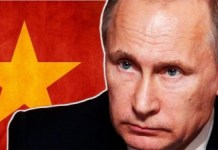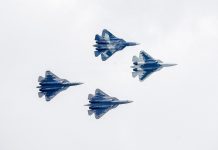Syria’s reconstruction will cost around $400 billion. This was stated by Russian Deputy Prime Minister Yuri Borisov after meeting “controversial” Syrian President Bashar al-Assad. EurAsian Times looks at a report of PressTV.
Borisov’s office said Thursday that the diplomat had discussed industrial, medical, and energy cooperation with Assad in Damascus on Thursday, as a years-long fight against foreign-backed terrorists nears its end.
“The range of questions discussed with the Syrian leader included political affairs, Russia’s participation in Syria’s postwar reconstruction and restoration of life to normal, and cooperation in industry, medicine, energy and other branches of the economy,” Borisov’s office said.
Syria has been able to purge Daesh and other terrorist groups from most of the country with support from Iran and Russia as well as the Lebanese resistance movement Hezbollah.
The war, which began in March 2011, has killed hundreds of thousands of Syrians and dislocated thousands more while destroying most of the country’s infrastructure and industrial capacity.
Borisov said it was critical for Damascus to maximize the effectiveness of its planning by using the existing capacities in order to create the required financial and economic mechanisms.
He noted that Syria didn’t have much time to begin the process as vestiges of what was once a united front against the government could still pose a threat by recruiting people.
“We’ve got to act fast, because any delays in economic recovery will be fraught with serious problems, including an upsurge in the activity of defeated terrorists. Extremists would find it far easier to recruit supporters from the class of impoverished people unable to support their families,” Borisov said.
Borisov leads a Russian delegation that is in Damascus for a meeting of the permanent Russian-Syrian commission for trading, economic, scientific and technical cooperation.
Also on Thursday, Russia and China refused to vote on United Nations Security Council resolution that sought to extend approval for cross-border humanitarian aid deliveries to Syrian territories that were controlled by terrorists back in 2014, when the resolution was first adopted.
Vassily Nebenzia, Russia’s Ambassador to the UN, said the text of the resolution — drafted by Sweden and Kuwait– was outdated and “divorced from reality” because the situation in Syria had changed drastically.
“The fact that the stabilizing trends are strengthening in Syria is undeniable … Despite remaining problems, there are positive steps in improving the humanitarian situation,” Nebenzia said.
The Russian envoy said the UN needed to help Damascus speed up its recovery process instead. “This is a critical moment and the international community needs to now give a helping hand to the Syrians in order to overcome the devastation and making sure that people who voluntarily decided to return can live normally,” he added.
Western countries, however, have made it clear that they will not approve reconstruction funding for Syria, or remove sanctions on the Assad government unless a political solution is reached.
Despite running an aerial campaign that allegedly targets terrorists, the US and its allies have been openly supporting militant groups fighting Assad’s government, often helping them by targeting Syrian forces. Washington has repeatedly stressed that Assad must step down as part of any political solution.
Originally Published By PressTV




